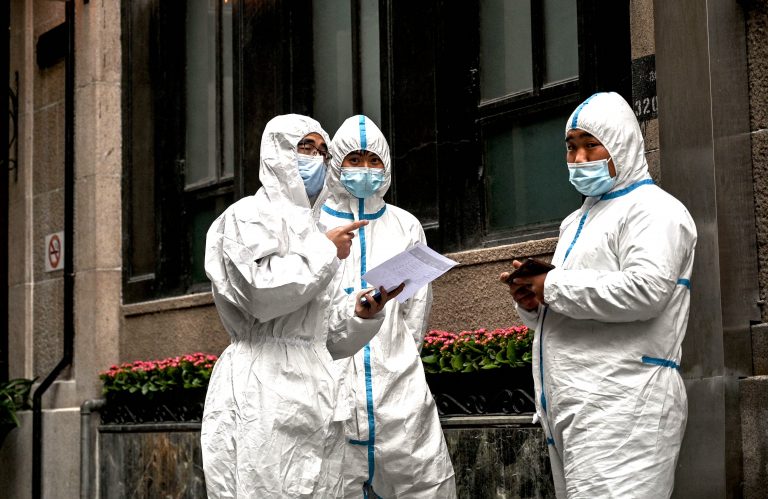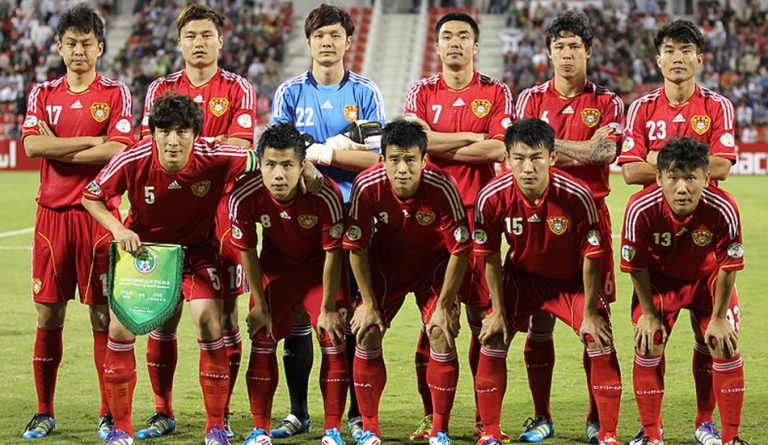News analysis
Over the past two years, cities and entirely provinces in China implemented economically and socially destructive “zero-COVID” lockdowns and other control measures to squash the virus. Shanghai, however, stuck to a milder “precise epidemic prevention” response to keep cases down.
Until the Omicron strain hit Shanghai in early March 2022, the city’s authorities had kept COVID-19 at bay with targeted measures while preserving relatively normal living and economic activity. Shanghai health experts stuck to their guns when cases ticked upwards. Zhang Wenhong, an infectious diseases specialist and head of the Shanghai COVID-19 Medical Treatment Experts Team, argued in a March 24 blog post that sustaining normal living is as equally important as implementing so-called “dynamic zero-COVID.”
Zhang added that the mindset of “fighting the virus regardless of cost” should be abandoned, as well as “one-size-fits-all” responses. On March 26, Shanghai COVID-19 task force expert Wu Fan ruled out locking down the city because “Shanghai is not only home to Shanghai residents,” but plays an “important role in national economic and social development and even affects the global economy.”
‘Zero-COVID’ comes to Shanghai
The Shanghai authorities, however, would quickly go in the opposite direction from that advocated by its experts. The eastern half of the city went into full lockdown on March 28, followed by the western half on March 31. In an epidemic prevention and control meeting for the city’s leading cadres on March 30, Shanghai Party secretary Li Qiang announced that “comprehensive prevention and control measures” would be implemented to bring the city to “zero-COVID” as soon as possible.
READ MORE:
- 3 Key Takeaways From China’s ‘Two Sessions’ Meetings This Year
- In Leaked Recording, Elite Chinese Scholar Laments Crippling Dysfunction of Communist Regime
- Hong Kong to Appoint New Leader in May After Carrie Lam Stands Down
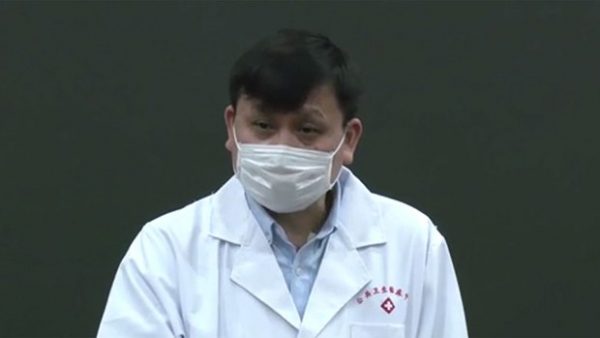
Success
You are now signed up for our newsletter
Success
Check your email to complete sign up
Li was no doubt looking to hew closely to central government policy and salvage his political achievements in pivoting squarely to “zero COVID” and abandoning “precise epidemic prevention.” With 36,000 cases in Shanghai on March 31, or more than a third of all cases in China, Li would have understandably felt the need to change up policy to get results. The resulting social and economic impact of the lockdown, however, suggests that Li Qiang had merely dug a deeper hole for himself and his political patron Xi Jinping.
COVID lockdowns in China have caused humanitarian crises since the first one in Wuhan. Food and medical supply quickly becomes an issue for millions of residents, given that lockdowns are usually implemented on very short notice. Hospitals and quarantine facilities have become overwhelmed, to the detriment of the infected, close contacts, and medical staff. As the pandemic measures drag on, those requiring medical treatment for other ailments are affected to varying degrees as they are hampered from accessing medical facilities.
Humanitarian disaster, popular unrest
Information circulated online by Shanghai residents and other Chinese netizens indicate that the Shanghai lockdown was taking its toll on the local populace as was the case earlier in other places. The locals shared nightmare stories of healthy and infected people being quarantined together in makeshift facilities, elderly folk who live by themselves starving to death in their homes when they run out of food, and people who cannot cope with the lockdown pressure committing suicide.
Struggles to seek treatment for other illnesses led to tragedy, including the notable death of a Shanghai East Hospital nurse suffering from an asthma attack because her hospital was closed for COVID disinfection and her family was diverted to another one.
PREVIOUS COVERAGE
- Residents in Locked-Down Xi’an Made to Say ‘Thank You, Communist Party’ When Receiving Food
- Xi Warns About Food Security at ‘Two Sessions’ Meetings: ‘China can’t be complacent’
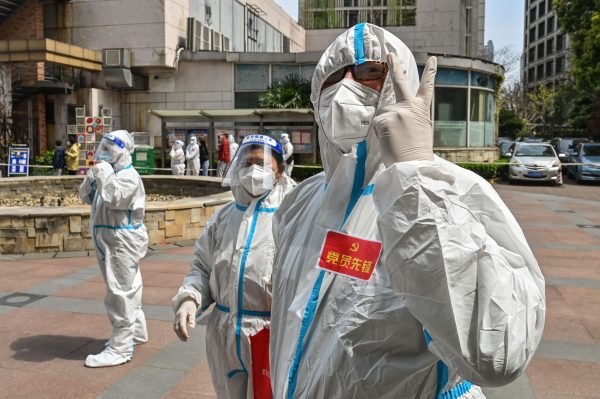
The Shanghai authorities’ zeal in pursuing “zero-COVID” also resulted in a controversial isolation protocol that drew local condemnation and international attention. COVID-positive children in Shanghai were separated from their parents and placed in separate quarantine facilities. Videos and photos circulated online showed numerous young children and even toddlers being housed in facilities with minimal or no adult supervision.
Social media posts describe an isolation room with eight children and no adults, while others claim that 3-month infants were being separated from breastfeeding mothers. Western diplomats from more than 30 countries later wrote to the PRC foreign ministry requesting that children not be separated from their parents.
The harsh lockdown conditions in Shanghai have since led to several small-scale protests and strikes. Brutal conditions at Shanghai’s Donghai Elderly Care Hospital led some medical orderlies to go on strike and expose the death of at least 100 patients to Western media. Haitangyuan Community residents in Shanghai’s Pudong District took to the streets after local public security officials stopped food delivery staff from entering the community. Overseas Chinese media reported that while some people were arrested, the police failed to take away the protest leaders due to strong resident opposition.
The local authorities have stepped up measures to “maintain stability.” Photos circulated online show people in hazmat suits with the characters for “militia” on their backs. A March 30 internal Party memo that was leaked by netizens urged all Party members and cadres to do their job well or be fired, as well as instructed public security officials to station themselves outside large supermarkets and markets to prevent the city’s 26 million residents from panic buying after the March 31 lockdown goes into effect.
Still, videos have emerged of people breaking out from their compounds to buy food, suggesting that the Shanghai government is struggling to control both the virus and society.
Massive economic impact
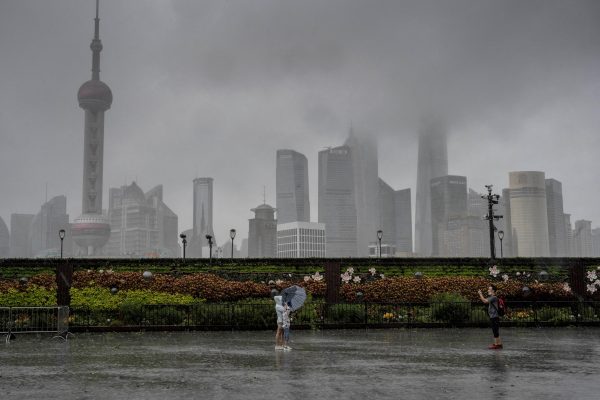
Given Shanghai’s importance as a massive business and finance hub, the city’s shutdown is expected to have a severe impact on the local and national economy.
Morgan Stanley economists downgraded their GDP growth forecast for China in 2022 to 4.6 percent from 5.1 percent on April 1 in considering the “strict adherence” to “zero-COVID,” while Citigroup economists note that China’s second quarter growth could fall as much as 0.9 percent.
RELATED:
- In 2022, Expect China’s Economy to Worsen Further
- CCP’s Beijing Winter Olympics Propaganda Fest Marred by Controversy
Chinese University of Hong Kong economists looking at trucking movement across the country estimated that “zero-COVID” lockdowns could cost the country at least $46 billion a month, or 3.1 percent of GDP. They further estimated that the Shanghai lockdown would lower China’s GDP by 4 percent.
Official Chinese economic data and government rhetoric since late 2021 hint at noticeable economic slowdown and a coming recession. Signs of economic deterioration have continued to emerge, including the manufacturing and non-manufacturing purchasing managers’ indexes (PMI) falling into contraction in February, the first simultaneous shrinking since the Wuhan outbreak in 2020.
Beijing is already struggling with the”spillover effects” of the Russia-Ukraine war, the Chinese real estate debt crisis, financial contagion, investors’ hesitancy and pullouts over crackdowns and tightening foreign scrutiny of Chinese companies listed overseas, and rising interest rates in the United States. By pressing on with the “zero-COVID” approach in Shanghai, the Xi leadership is only exacerbating China’s downward economic spiral.
Political problems
This downward spiral is almost entirely self-inflicted, yet Xi cannot afford to deviate from his “zero-COVID” policy given how it has become a key part of his political legacy.
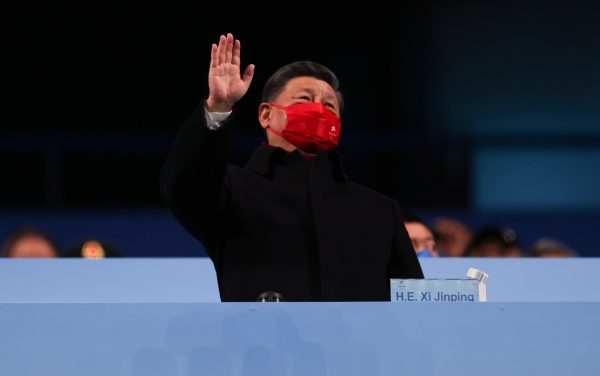
To reverse course now would be akin to an acknowledgment of failure, and Xi would suffer a crucial loss in quan wei (a Mandarin term meaning “authority and prestige”) before the 20th Party Congress when he is making a third-term bid. Xi thus has no choice but to double down on “zero-COVID,” pretend that it works, and squash dissenting voices.
And as long as Beijing’s stance is unyielding, Shanghai Party boss Li Qiang has no incentive to revert to milder epidemic prevention and control measures of the sort advocated by Zhang Wenhong — because being “politically correct” is paramount for job security and promotion in the CCP regime.
However, sticking to “zero-COVID” also means accepting and worsening the social and economic problems that come with it. Shanghai residents have figured out that the local authorities are more interested in preserving their political interests than dealing with the virus effectively. A leaked recording between a Chinese Center for Disease Control and Prevention official and a resident revealed that the local government’s COVID response is politically driven and disregards the recommendations of healthcare professionals.
Mounting social and economic crises in Shanghai and elsewhere in China will eventually translate into political problems, especially when many in the Party elite whose interests have been harmed by the Xi leadership become further incentivized to obstruct and oppose his rule. Locked in this vicious cycle, Xi Jinping will find his bid for a third term as regime head to be an uphill battle.
Larry Ong is a senior analyst with New York-based political risk consultancy SinoInsider. He was part of the SinoInsider team that forecasted the 19th Party Congress and 2018 Two Sessions personnel reshuffles with a high degree of accuracy.



